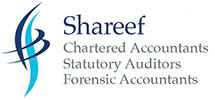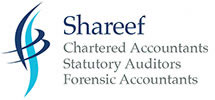Can you claim input tax on overseas sales expenses?
Your business sells goods and services to overseas customers, and you do not charge VAT. Can you still claim input tax on any UK expenses that directly relate to these sales?

Goods v services
The rules for goods and services sold to overseas customers are very different:
Export of goods. If you ship goods abroad, you have made a zero-rated supply for UK VAT purposes. You must retain proof of export as a condition of your zero-rating to show HMRC if requested that the goods have left the UK.
Supply of services. In most cases, you will not charge VAT to customers who are based outside the UK. There is no difference between EU and non-EU customers because the “place of supply” is usually where your customer is resident. This is the default position for most business-to-business sales and many business to consumer sales as well.
If all or most of your sales are not subject to VAT, your returns are likely to be net repayments so you could consider submitting monthly rather than quarterly returns to boost your cash flow. You can make the change through your online account with HMRC.
What about input tax?
If you buy goods in the UK and export them, you can fully claim input tax on the purchase of the goods, and any other expenses you incur, because you have made a taxable sale, i.e. you have charged 0% VAT as explained above.
The rules for services are more complicated:
- you must establish the rate of VAT you would have charged if you had sold the service in question to a UK-based customer
- if the rate charged is either 0%, 5% or 20%, you can fully claim input tax on your related expenses. This outcome is commonly known as outside the scope with recovery
- if the service is exempt from VAT under UK law because it is included in the list of services at Sch. 9 Value Added Tax Act 1994 , your input tax on related expenses is blocked by partial exemption.
Tip. It is possible that you can still claim input tax on the costs that relate to your exempt sales if the VAT on your expenses comes within the partial exemption de minimis limits.
Example. Jim is based in the UK and registered for VAT as a computer consultant; he earns £10,000 per month from a Canadian business. Most of the work is done by a VAT-registered subcontractor based in the UK called Diane, who charges Jim £6,000 per month. Diane will charge £6,000 plus VAT as a UK-to-UK sale, assuming she is registered for VAT, but Jim will not charge VAT on his fee to the Canadian customer because the place of supply is Canada. Jim can fully claim input tax on Diane’s fees because computer consultancy services are taxable when they are supplied to UK- based customers.
The fees charged to the Canadian customer are still included in Box 6 of Jim’s VAT returns because they relate to a supply of goods or services that he has made.
Deregistration?
If you expect that the taxable sales made by your business in the next twelve months will be less than £88,000, you can deregister from a current or future date. The £88,000 limit must include all sales you expect to earn from exporting goods but you will exclude services charged to overseas customers if the place of supply is outside the UK, i.e. because these sales are outside the scope of UK VAT.
Related Topics
-
HMRC pauses some refund claims for agents
Due to security concerns, HMRC has warned that it will not process refund claims made by authorised agents. What’s going on and what alternatives are available?
-
A guessing game - interest rates and employee loans
Buried in the 2024 Autumn Budget were small print changes to HMRC’s “official rate” of interest. The consequences of these have just taken effect. How might they affect you and your employees?
-
Do hybrid workers take fewer sick days?
A survey of 2,000 hybrid workers by International Workplace Group has revealed that more than a third are taking fewer sick days than they did when they were working full time in the office. What are the potential reasons for this?



 This website uses both its own and third-party cookies to analyze our services and navigation on our website in order to improve its contents (analytical purposes: measure visits and sources of web traffic). The legal basis is the consent of the user, except in the case of basic cookies, which are essential to navigate this website.
This website uses both its own and third-party cookies to analyze our services and navigation on our website in order to improve its contents (analytical purposes: measure visits and sources of web traffic). The legal basis is the consent of the user, except in the case of basic cookies, which are essential to navigate this website.